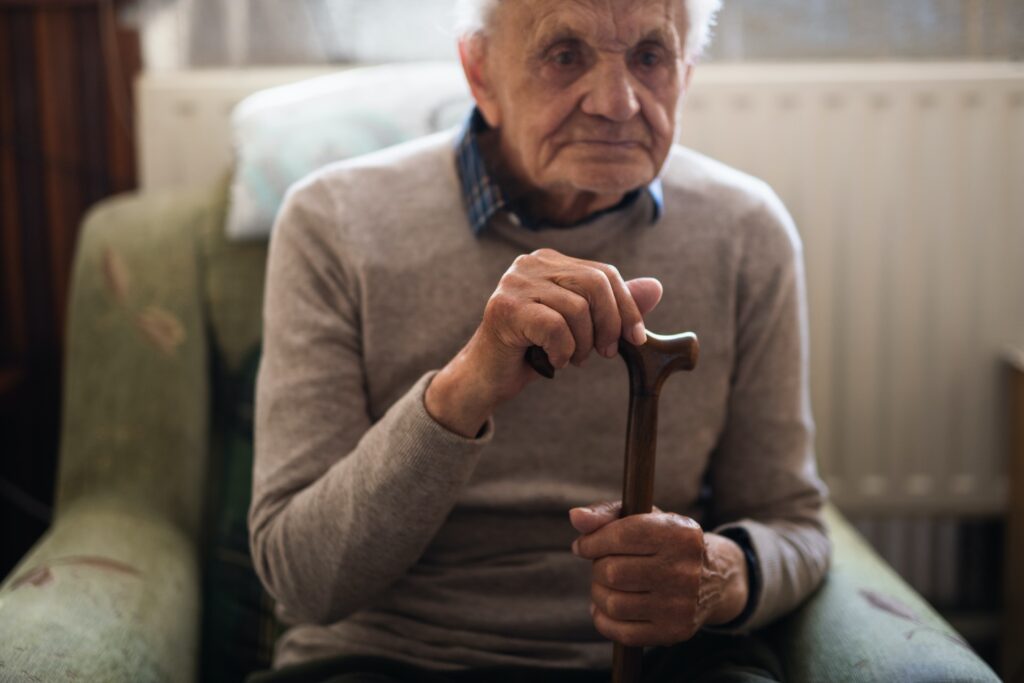Protecting Loved Ones from Nursing Home Abuse: Recognizing the Signs & Taking Action
Elderly family members, particularly those in nursing homes or long-term care facilities, depend heavily on caregivers for their well-being and safety. Unfortunately, not all caregivers uphold this immense responsibility, leading to instances of abuse or neglect. Identifying the signs of nursing home abuse and understanding how to prevent it can help protect our loved ones from harm.
As experts in nursing home abuse and neglect cases, the award-winning Kentucky injury attorneys of Circeo Law Firm are dedicated to fighting for justice on behalf of affected families. We understand the emotional, physical, and financial toll these situations can take, and our goal is to help families hold accountable nursing homes, caregivers, and staff responsible for mistreatment.
This blog post will delve into the various forms of nursing home abuse and neglect, the red flags to watch for, and how to protect your loved ones from such harm. Additionally, we will outline the legal steps that can be taken to pursue justice and compensation should negligence occur in a nursing home setting.
With this comprehensive guide, our hope is to empower families with the knowledge and resources needed to ensure that their loved ones receive the compassionate care and treatment they deserve. Through our shared commitment to eradicating nursing home abuse and neglect, we can create a safer environment for vulnerable elderly residents across the state of Kentucky.
Recognizing the Different Forms of Nursing Home Abuse and Neglect
Nursing home abuse and neglect can manifest in various forms; it is essential to understand each type. The following are some common categories of mistreatment:
- Physical abuse: Deliberate actions that inflict pain, injury, or bodily harm, such as hitting, slapping, or inappropriate use of physical restraints.
- Emotional or psychological abuse: Intentional infliction of mental distress through verbal or nonverbal actions, such as belittling, yelling, or intimidation.
- Sexual abuse: Inappropriate or unwanted sexual behavior or contact, including non-consensual touching or acts perpetrated against those unable to give consent.
- Neglect: Failure to provide residents with essential care, such as adequate food, water, hygiene, shelter, or medical attention.
Identifying Warning Signs of Nursing Home Abuse or Neglect
To detect and prevent nursing home abuse or neglect, it is crucial to recognize the following warning signs:
- Physical indicators: Bruises, cuts, fractures, burns, or other unexplained injuries can signal physical abuse. Untreated bedsores, poor hygiene, malnutrition, or dehydration may suggest neglect.
- Behavioral changes: Sudden shifts in mood, depression, anxiety, or withdrawal can be indicative of emotional or psychological abuse.
- Sexual abuse signs: Genital injuries, sexually transmitted infections, or unexplained nudity can point to sexual mistreatment.
- Nursing home environment clues: Unsanitary living conditions, inappropriate staff behavior, or a pattern of complaints from other residents can raise concerns about potential abuse or neglect.
Protecting Your Loved Ones from Nursing Home Abuse or Neglect
Taking a proactive approach to your loved one’s care can significantly reduce the risk of abuse or neglect. Consider these steps:
- Thoroughly research facilities: Conduct in-depth research on nursing homes, including their inspection records, staffing ratios, and any history of complaints or abuse.
- Maintain open communication: Frequent conversations with your loved one about their day-to-day experiences, concerns, and needs will foster trust and help identify any potential issues early on.
- Visit regularly and at varying times: Having a visible and active presence in the facility not only conveys your concern for your loved one’s well-being but also makes staff aware of your vigilance in monitoring their care.
- Document any concerns: Maintain detailed records of any suspicious incidents, injuries, or conversations. Request explanations from nursing home staff and escalate your concerns as needed.
Legal Options in Pursuing Nursing Home Abuse or Neglect Cases
If you suspect nursing home abuse or neglect, seeking assistance from an experienced Kentucky injury attorney is critical. Some reasons for pursuing legal action include:
- Holding accountable parties responsible: Nursing homes, caregivers, or staff can be held liable for abuse or neglect perpetrated against a resident in their care.
- Pursuing compensation: Compensation can be sought for medical expenses, pain and suffering, and other damages resulting from abuse or neglect incidents.
- Protecting other residents: Legal action can help ensure reforms are implemented to prevent future instances of mistreatment, safeguarding other vulnerable elderly residents.
A knowledgeable attorney can guide you through the necessary steps to build a strong case, such as gathering evidence, identifying liable parties, and effectively representing your loved one’s interests in court or settlements.
Conclusion
The safety and well-being of our elderly loved ones in nursing homes should be a top priority, requiring vigilance in detecting and preventing abuse or neglect. By recognizing warning signs, taking proactive steps to ensure proper care, and seeking experienced legal representation if needed, we can work together to eradicate this pervasive issue.
Circeo Law Firm’s dedicated injury attorneys in Lexington, KY dig deep into our vast experience and resources with a shared goal – to aggressively advocate for those injured due to nursing home abuse or neglect, helping them receive justice and compensation they deserve. Through education and awareness, collaborative efforts, and commitment to a better tomorrow, we can create a safer, and more compassionate environment for vulnerable elderly residents across the state of Kentucky.

